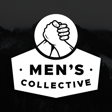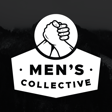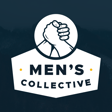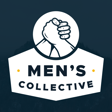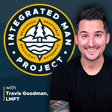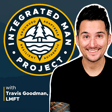
Rites of Passage: Rituals, Relationships, and Responsibility (feat. Luke Entrup)
Welcome back to The Integrated Man Project! I'm your host, Travis Goodman, and in today's episode, we're joined by a very special guest, Luke Entrup, a seasoned coach who's led transformative retreats and rites of passage programs for men and boys for over two decades.
As we shine a light on the crucial conversations about masculinity, consent, and sex education, Luke and I dive deep into how we can teach boys about nervous system regulation and the importance of mentorship and eldership in shaping the journey from childhood to adulthood. We'll explore creating a comfortable space for open discussions regarding changing bodies and sex, especially between fathers and their offspring.
You'll hear about Luke's personal endeavors to foster a healthy rapport with his own children—one that encourages them to turn to him when needed, despite the challenges that individuation might bring. Moreover, we'll examine his approach to discussing sex ed through bedtime stories and how this can facilitate easier conversations at home.
We'll also tackle the significance of rites of passage, the longing for belonging that men face, and how to navigate the emotional landscape of modern masculinity. Along with this, we'll discuss how Luke is rewriting the narrative of what it means to be a man, addressing 'toxic masculinity,' and the importance of being connected to something greater than oneself.
Luke reveals his powerful methodology of bringing fathers and sons into the wilderness to acknowledge the critical transition into manhood. And he doesn't shy away from discussing resistance to these ideas, emphasizing that men who seek out his program are ready for guidance and transformation.
This episode is not just theoretical; it's about taking actionable steps toward healing and reconciliation for past wounds, facing challenges with bravery, and the vital role of community in fostering healthy masculinity.
For those interested in furthering this journey, I'm launching a men's group coaching program, and I invite you to reach out for more details.
So sit back, tune in, and get ready for an insightful conversation that could very well reshape your understanding of what it means to be a man in today's world. Let's get into it!
WATCH ON YOUTUBE:
JOIN THE MAILING LIST & GET INVOLVED!
Connect and Support LUKE:
Instagram: @lukeentrup
Web: www.lukeentrup.com
Connect and Support Travis:
YouTube: Travis Goodman
Instagram: @integratedmanproject
Check out the Website: TBD
